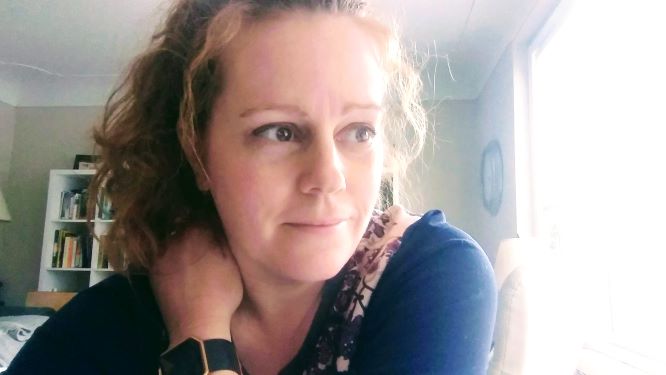
Supporting Loved Ones Who Struggle
We can probably all agree that this pandemic will leave no one unscathed. From layoffs to online learning for kids…to our own mental health – it’s all been a little overwhelming. I’ve also noticed that there have been a lot of articles this last year on our mental health, including self care tips, learning how to be patient with ourselves, and other tricks on surviving lockdowns.
All of these have been helpful and a great reminder to take care of our mental health, especially those who struggled before a pandemic even hit. We know that intense stress, including isolation and lack of social contact can often trigger negative responses.
But I want to acknowledge today one aspect that I don’t hear too much of: the overwhelming stress on those who support a loved one struggling with mental health issues. Whether a parent, child or spouse, the incredible stress that one is under to not only deal with their own mental health during a crisis, but often times forced to carry and support another person’s mental health — is incredibly difficult.
For myself, I’m a spouse to someone who struggles with mental illness. On a regular year, it’s hard enough. Add in a pandemic and you are just barely keeping it together…for two people. For some of us, we’ve already spent years in and out of mental facilities, hospitals, and doctor’s offices trying to educate ourselves on clinical terms, medication, and best support practices. Even with years of “practice” before the pandemic hit, it never really prepared me.
Watching someone at their lowest state is very difficult, because often we can’t just say a prayer and it’s over. We can’t just flip a switch, try to be more positive, or have a therapy appointment and it’s magically all better. This can even lead us to more disappointment when things don’t get better.
Here are a few things I’ve personally had to come to peace with, in order to keep my own mental health in check:
….it’s not your fault. When my husband’s mental health has been poor and we end up at the hospital, I’ve often blamed myself – how could I have not seen it coming – why didn’t I recognize the signs – is it my fault he’s in the hospital again? While we can often recognize patterns that occur with mental illness, such as winter being a difficult season for those suffering from depression or Bipolar, even with a plan in place, it’s still very difficult to know what can trigger a loved one’s episode. So, don’t take the blame on yourself.
…..you are not responsible for what other people think. I’ve spent too much time worrying about what others think. When someone isn’t well, they might not change for three days or shave, or even shower. Maybe they’ll act a little more socially awkward and you can’t predict what they’ll say or do in the presence of others. Take that load off your shoulders – because you can’t control it. We often make judgements about people’s behaviour based on what we assume are internal motivations – so, we assume that someone who is impatient in line at the store is a “jerk”; however, what we don’t see are all the external factors leading to that outburst, such as a parent who is sick, or stress from job loss…or a mental health issue. So, I can understand how people judge, but it’s also something I can’t control unless they’ve walked the journey that I have, so I’ve learned…slowly…to let it go.
…. give yourself a break. Know that you don’t have to be everything to everyone. That’s a hard one for me because I feel I’m never doing enough. Acknowledge that sometimes it’s okay to say you can’t be that amazing friend right now, because you just don’t have the capacity to take on everyone else’s heavy burdens while dealing with your own. Take a mental break. Focus on what’s important at that moment. Friends will understand.
….support is key. Find a trusted friend and let them know that you just need someone to listen. I have often held back because I just end up getting advice about things I should do, or what I shouldn’t be doing. If you are that friend – my advice…just listen. Don’t overwhelm them with questions about medications, doctors, etc. Offer to listen and simply pray. Allowing me to just blab about my feelings or frustrations without anyone trying to fix the situation is great. And even just someone texting without expectation of a response, to just say they are praying…goes a long way.
I’m a believer in the intersection of bio-psycho-spiritual. We need all aspects to help us through our mental health journey. We need to acknowledge that we might need medication to balance what is happening in the brain, therapy to work on the triggers that come from past trauma for example, and prayer to guide us through difficult periods of our mental health.
Some Helpful Resources
Podcast: The Faith & Mental Wellness Podcast here
Education Website: medcircle.com – There is a free trial option, or check out their YouTube channel
Helpful Books:
1. Rising Strong – by Brene Brown
2. Grace for the Afflicted by Matthew Sanford
3. Grace for the Children by Matthew Sanford
Blog Posts:
1. Ways to Love Someone through Depression that Actually Helps: link here
2. Mental Health Alliance: Christian Mental Health and Mental Illness: Link here
3. Focus on the Family – Mental Health Resources: Link Here
Emergency Mental Health Crisis Support:
1. Coast Burlington: Link here
2. Coast Hamilton: Link here
Other Support:
Find a Therapist: Psychology Today (filters optional for faith-based counsellors)
Shalem Mental Health Network: a faith-based, Ontario-wide network that provides responsive and preventive mental health support to individuals, families and communities

About the Author
Rachel Collins has been on staff with Compass Point since 2014 as the Communications Coordinator in our main office.
She has journeyed alongside her husband who was diagnosed with Bipolar Disorder. Even though the journey has had a few detours, and tough moments, it has led her to return to school to earn her BA in Psychology.
Follow Our Compass Point Mental Health Page
Related Posts
Related
Summer Bucket List
Top Ten Book SuggestionsIn summer we often have more time to relax with a good book. These recommendations come from other Compass Point women—consider checking out one or two that whet your appetite. Perhaps you’d even like to pick something to read with a friend or...
Fill My Cup Lord
Do you ever feel that if you hear the words COVID or global pandemic one more time you would scream? My question today is this, how do we cope? How do we fill our cup when we are running on empty? There is an old chorus that speaks into what I wish to share. Fill...
A Golden Opportunity
What golden opportunities are available to us during these hard and dark days of a global pandemic? How do we even escape the feeling of isolation? This feeling is not only limited to the physical but also can lead to mental and emotional pain. How do we get out...

